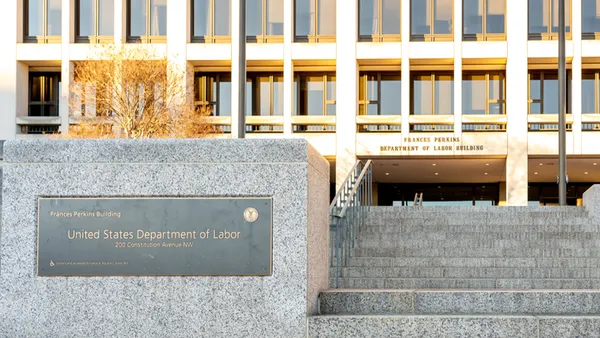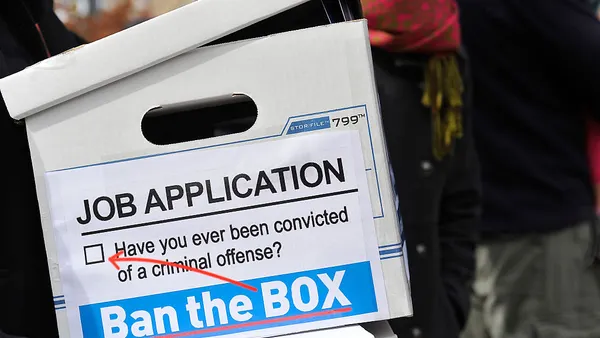Dive Brief:
- Employers may continue to treat salaried executive, administrative and professional employees who are exempt under the Fair labor Standards Act (FLSA) as exempt, even if they perform nonexempt duties during the pandemic, the U.S. Department of Labor (DOL) said in guidance released July 20. "COVID-19 is a rare event affecting the public welfare of the entire nation that an employer could not reasonably anticipate and is consistent with the FLSA's regulatory criteria for emergencies," the agency said.
- Employers must pay workers for all hours of telework, including any overtime compensation due for hours worked beyond 40 in a workweek, DOL continued in the guidance, which also touched on the requirements of the Family and Medical Leave Act and the Families First Coronavirus Response Act (FFCRA). "This is true even of hours of telework that you did not authorize," DOL said.
- Employers need not compensate employees for unworked hours that interrupt their work days, the agency opined. Continuous workday guidance generally mandates that "all time between the performance of the first and last principal activities of a workday is generally compensable work time." But because the pandemic has called for "needed flexibility" to facilitate teleworking arrangements, DOL included in its FFCRA rulemaking that employers need not count unworked hours between employees' first and last principal activities in a workday.
Dive Insight:
In its updated guidance, DOL addressed two major wage and hour issues: overtime exemption and hours worked.
Its guidance regarding hours worked appears to further the logic DOL generally applies in enforcing this area of the FLSA, at least in part. For instance, employers may want to create a policy that establishes workers will be paid for any unauthorized work they complete, but such behavior risks penalties, Freeborn & Peters Partner Erin E. McAdams Franzblau previously told HR Dive.
DOL's other pieces of guidance appear to depart from established wage and hour logic. Generally, employers are told to examine wage and duties when classifying employees as exempt or nonexempt. Here, however, DOL counsels employers to temporarily maintain exempt classifications regardless of workers' pandemic duties, so long as their pay meets the exemption threshold. And, as DOL itself pointed out, its guidance regarding flexible work and the hours interrupting an employee's work day departs from its continuous workday guidance.














